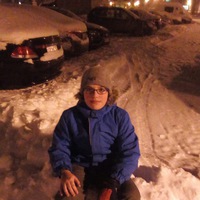
II. Bilde wenn-Sätze. 1 . Man ist krank. Man liegt im Bett. 2 Du siehst zu viel fern. Du schadest
deinen Augen. 3 Man surft im Internet. Man bekommt viel Informationen. 4 Anton trinkt oft Cola. Er hat Magenschmerzen. 5 Lora will gesund bleiben. Sie sollte nur Obst und Gemüse essen. 0
0
 0
0
Ответы на вопрос
 Внимание! Ответы на вопросы дают живые люди. Они могут содержать ошибочную информацию, заблуждения, а также ответы могут быть сгенерированы нейросетями. Будьте внимательны. Если вы уверены, что ответ неверный, нажмите кнопку "Пожаловаться" под ответом.
Внимание! Ответы на вопросы дают живые люди. Они могут содержать ошибочную информацию, заблуждения, а также ответы могут быть сгенерированы нейросетями. Будьте внимательны. Если вы уверены, что ответ неверный, нажмите кнопку "Пожаловаться" под ответом.

Ответ:
1. Wenn man krank ist, liegt man im Bett.
2. Wenn du zu viel fernsiehst, schadest du deinen Augen.
3. Wenn man im Internet surft, bekommt man viel Information(en).
4. Anton trinkt oft Cola, wenn er Magenschmerzen hat.
5. Wenn Lora gesund bleiben will, sollte sie nur Obst und Gemüse essen.
 0
0
 0
0

The sentences you provided are examples of conditional sentences in German, often referred to as "wenn-Sätze". They express an action or outcome that can only occur if a certain condition is fulfilled first. The condition appears in the subordinate clause that is usually introduced by the conjunction "wenn" (if/when). The resulting action appears in the main clause .
Let's break down each sentence:
1. "Man ist krank. Man liegt im Bett." This can be translated as "If one is sick, then one lies in bed."
2. "Du siehst zu viel fern. Du schadest deinen Augen." This can be translated as "If you watch too much TV, then you harm your eyes."
3. "Man surft im Internet. Man bekommt viel Informationen." This can be translated as "If one surfs the internet, then one gets a lot of information."
4. "Anton trinkt oft Cola. Er hat Magenschmerzen." This can be translated as "If Anton often drinks Cola, then he has stomach pains."
5. "Lora will gesund bleiben. Sie sollte nur Obst und Gemüse essen." This can be translated as "If Lora wants to stay healthy, then she should only eat fruit and vegetables."
In German, the tense used in these clauses changes depending on whether the sentence contains a present, past, or future condition. The word order of the main clause changes depending on whether it comes first or second in the sentence. When the main clause comes first, the conjugated verb comes after the subject, occupying the second position. When the main clause comes second, the conjugated verb comes before the subject .
The phrase "bilde wenn-Sätze" can be translated as "form conditional sentences". In this context, "bilde" means "form" or "create", and "wenn-Sätze" refers to the type of sentences we are creating .
 0
0
 0
0
Похожие вопросы
Последние заданные вопросы в категории Немецкий язык
-
Математика
-
Литература
-
Алгебра
-
Русский язык
-
Геометрия
-
Английский язык
-
Химия
-
Физика
-
Биология
-
Другие предметы
-
История
-
Обществознание
-
Окружающий мир
-
География
-
Українська мова
-
Информатика
-
Українська література
-
Қазақ тiлi
-
Экономика
-
Музыка
-
Право
-
Беларуская мова
-
Французский язык
-
Немецкий язык
-
МХК
-
ОБЖ
-
Психология
-
Физкультура и спорт
-
Астрономия
-
Кыргыз тили
-
Оʻzbek tili


















